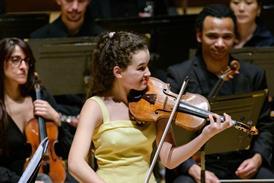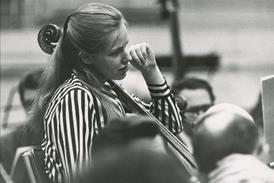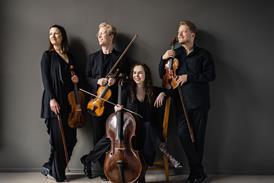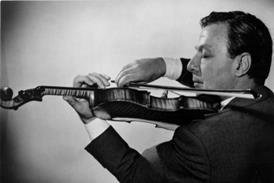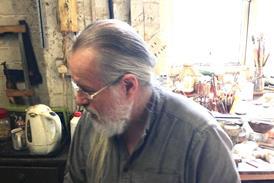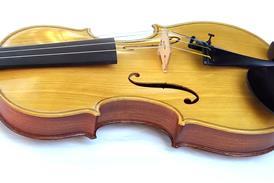Introducting Ken Lam as our inaugural director of orchestral studies, and resident conductor of the Tianjin Juilliard Orchestra.
Ken Lam is our inaugural director of orchestral studies and resident conductor of the Tianjin Juilliard Orchestra. This fall, the season kicked off with a performance of Schubert’s “Unfinished” Symphony and Beethoven’s Symphony No. 2. Upcoming programming includes many staples of the classical music canon – works like Stravinsky’s Firebird, and symphonies by Brahms, Samuel Barber, and Tchaikovsky.
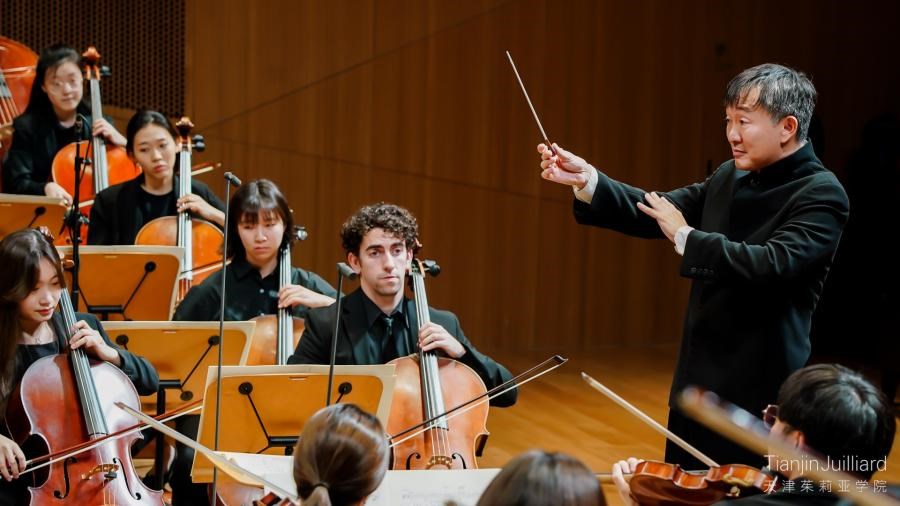
Ken Lam conducting the Tianjin Juilliard Orchestra in September 2022.
The Tianjin Juilliard Orchestra will also perform works by living composers from diverse backgrounds, such as Guo Wenjing and Joan Tower. All these works challenge our students both technically and musically, and Mastro Lam hopes they will also delight our audiences!
How did you get your start in music?
Like a lot of young people in Hong Kong, where I was born, I grew up playing music from an early age. I played piano and violin, and I sang in the school choir. I started piano lessons when I was three and violin when I was seven. My violin teacher was also my school orchestra conductor, and I recall the passion that he brought to the music and the exhilaration that we felt every time we came together to play as an orchestra.
You studied economics at Cambridge University and worked as an attorney specialising in international finance for a decade. How did this experience inform your work as a conductor?
We get a wider perspective of the world when we study multiple disciplines and interests. As an attorney, I had to deal with a lot of people – clients, colleagues and counterparties, all of whom can be very demanding. So you learn to work with them and how to get the best from them. These people skills serve me well as a conductor, because my instrument, the orchestra, is made up of human beings.
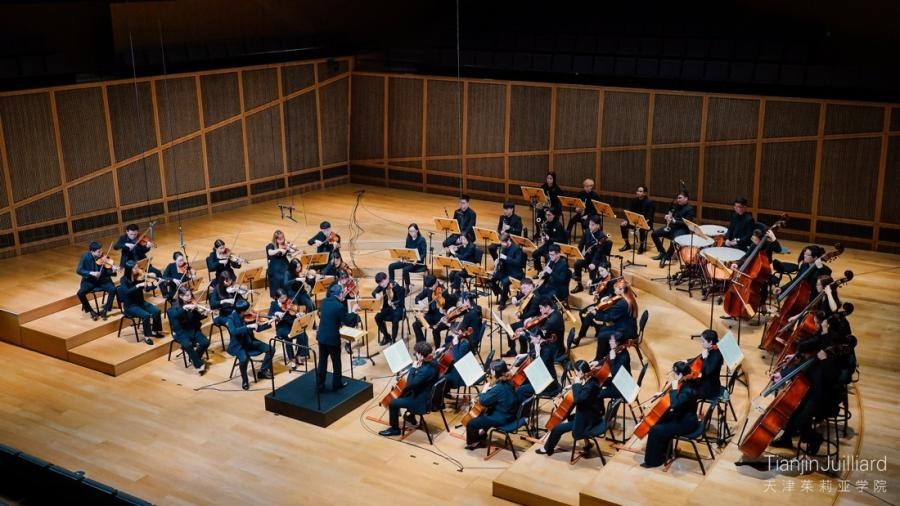
The Tianjin Juilliard Orchestra in concert
Why did you make the switch from law to conducting?
Back when I was an attorney in Hong Kong, I had an opportunity to conduct my local community orchestra when our conductor was not available. I loved every moment of it and began attending conducting masterclasses in Europe for a few summers.
At one of these workshops, my eventual conducting teacher, Gustav Meier, encouraged me to study with him at Peabody Conservatory in the US and I took a break from the law the following year. What I thought was only going to be a one-year break turned into a career. Now, I jokingly tell friends that I am still on vacation!
What are some of the highlights of your conducting career so far?
The National Symphony Orchestra debut in Washington D.C. was certainly one of the highlights, and it launched my career. I would like to think that every time I step onto the podium, that the rehearsal or concert at hand is the most important musical event in that moment. I also treasure immensely the relationships that I form with orchestras and musicians, many of whom have become very good friends.
Why did you choose to come to Tianjin Juilliard?
Tianjin Juilliard is an incredibly exciting new chapter for me. I have lived and worked in the United States for 17 years and I am excited to have the opportunity to come to Tianjin and share my skills and experiences with the students and my colleagues. Juilliard has a tradition of excellence and I know how music education of the highest level can impact our communities positively.
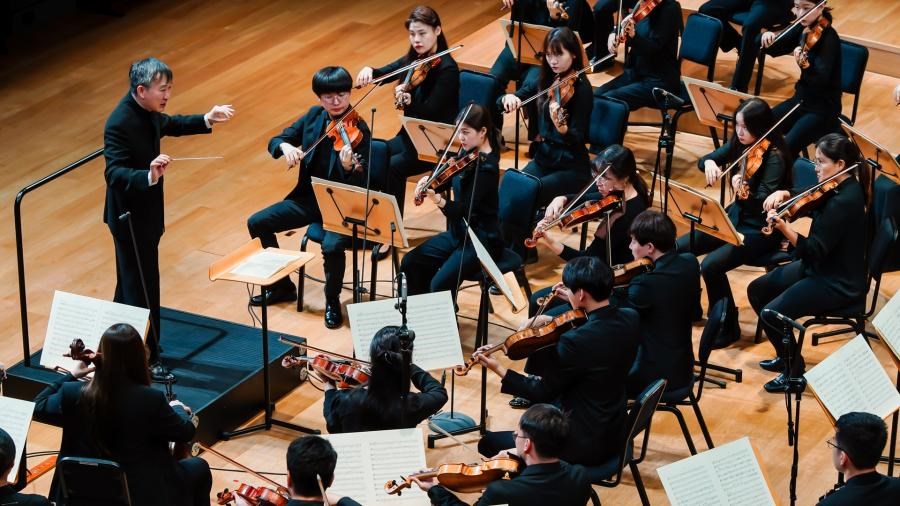
Ken Lam leading the Tianjin Juilliard Orchestra in a performance of Beethoven’s Symphony No. 2.
As the new director of orchestral studies program, what new initiatives are you planning?
The level of the students at Tianjin Juilliard is extremely high. The performance season is crafted with the goal of preparing our students for their professional careers.
Orchestral musicians are some of the most critical listeners because that is what we do on stage every day. Collaboration can take many forms, both internally, within the context of the orchestra and externally, across disciplines, industries and communities.
I am very happy that Tianjin Juilliard focuses on collaborative programs, and I look forward to creating more opportunities for our students to engage with communities.
What qualities do you value most in Tianjin Juilliard’s graduate students?
Three tenets stand out as being most important in my teaching – passion, curiosity, and excellence. With these qualities in mind, we hope to give our students the tools to listen critically, be curious enough to ask questions, and ultimately teach themselves to be better musicians and people.


